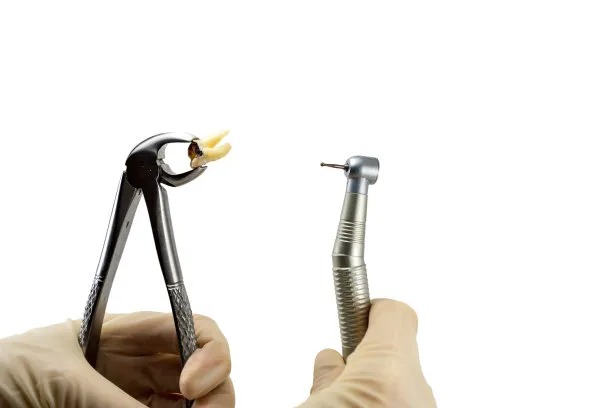Summary: Dental implantation is a significant procedure that can enhance oral health and aesthetic appeal. Before proceeding, patients must consider several guidelines and precautions to ensure optimal results and efficient recovery. This article discusses the four essential areas to focus on: understanding the procedure, assessing health conditions, choosing a qualified specialist, and implementing effective aftercare strategies. Each section provides insights to help patients make informed decisions and achieve the best possible outcomes while minimizing risks associated with dental implants.
1. Understand the Dental Implant Procedure

The first step towards a successful dental implant is to comprehend what the procedure entails. Dental implants involve surgically placing a titanium post into the jawbone, which serves as a sturdy foundation for replacement teeth. This understanding helps patients set realistic expectations and prepares them for both the process and the recovery period that follows.
Moreover, patients should be informed about the different stages of the procedure, which generally includes initial consultation, imaging, implant placement, and follow-up visits. Each stage plays a critical role in the overall success of the dental implant, making it essential for patients to be well-prepared for each aspect.
Additionally, understanding the potential risks and complications is crucial. Common concerns may include infection, nerve injury, or sinus issues. By knowing these risks in advance, patients can discuss them openly with their dentist to mitigate any fears and develop a solid plan moving forward.
2. Assess Health Conditions Before Surgery
Before undergoing dental implantation, it is vital to assess existing health conditions that may affect the process. Conditions such as diabetes, smoking, and autoimmune diseases can significantly influence healing and the overall success rate of dental implants. Therefore, patients need to provide their dentist with a comprehensive medical history.
In some cases, certain health conditions may necessitate a thorough evaluation or pre-surgical treatments to optimize the patients medical status. For instance, individuals with diabetes might require enhanced glucose control to ensure proper healing post-surgery.
Furthermore, addressing lifestyle habits like smoking is equally important, as it can impede recovery and increase the likelihood of implant failure. Patients should consider quitting smoking before and during the recovery phase to improve their healing trajectory and implant longevity.
3. Choose a Qualified Specialist for Your Procedure
Choosing the right dental professional is a critical factor in ensuring the success of the implantation. Not only should patients opt for dentists who specialize in oral surgery or implant dentistry, but they should also check their credentials and experience in this specific field. Researching online reviews and seeking recommendations can provide additional reassurance.
Additionally, the ability to communicate effectively with your dentist is essential. A good dentist will take the time to discuss all aspects of the procedure, listen to your concerns, and answer any questions. This open communication fosters trust and can alleviate any anxieties surrounding the procedure.
Moreover, it is beneficial to visit the dental clinic beforehand to assess the technology and equipment used. Modern facilities with advanced tools can enhance the surgical experience and potentially lead to superior results.
4. Implement Effective Aftercare Strategies
Post-operative care is vital to ensure a smooth recovery after dental implantation. Following the dentists instructions regarding medication, diet, and hygiene practices can significantly impact healing and implant success. For instance, avoiding hard foods in the initial days can prevent undue stress on the new implant.
Furthermore, maintaining oral hygiene is crucial during the recovery stage. Patients should follow gentle cleaning methods to keep the surgery site free from infection while still ensuring the surrounding teeth are well cared for. Regular follow-ups with the dentist will also help track progress and immediately address any complications.
Lastly, being patient and allowing time for healing is essential. Bone integration with the implant can take several months, and understanding this timeline can set realistic expectations regarding the final outcome. Support from loved ones during recovery can also aid in a more relaxed and problem-free healing process.
Summary: In conclusion, considering the essential guidelines and precautions outlined in this article will empower patients to achieve optimal results from dental implantation. Comprehensive understanding of the procedure, assessment of health conditions, selecting the right specialist, and implementing effective aftercare strategies are key components that contribute to the overall success of the treatment.
By taking these steps, patients are more likely to experience a smooth recovery and enjoy the long-term benefits of their dental implants.
This article is compiled by Vickong Dental and the content is for reference only.
Vickong Dental
Vickong Dental is a large medical group established in Hong Kong in 2008 by professors from well-known medical universities in Guangdong and Hong Kong, as well as medical doctors from key national '985' universities (including Master's supervisors and senior professors). The chain of branches brings together expert dentists with PhDs and Master's degrees from Hong Kong and Mainland China, committed to providing high-quality dental treatment.
"Vickong Dental Practices the University Motto of 'Healing and Serving Society,' with a Stable Operation for Sixteen Years. It Has Been honored with Hong Kong Enterprise Leaders's Choice,' and is a Global Trusted Implant Center for the Nobel Implant System. Recommended by Hong Kong Metro Broadcast and Guangdong Television, it Serves Customers from Over Thirty Countries and Regions, Gaining the Trust and Favor of Citizens from the Guangdong-Hong Kong-Macau Greater Bay Area and Surrounding Cities.

Thousands of customers' unanimous praise
The most recognized and highly recommended dental service by customers in the Guangdong-Hong Kong-Macau Greater Bay Area
We Ensure You Receive Detailed Care and Attention Here
Hong Kong standards, Shenzhen prices, Your Trusted English-speaking dentists

Vickong Dental Medical-Grade Instrument Disinfection Process
Vickong Dental Medical-Grade Instrument Disinfection Process

Vickong Dental Chain: A Warm and Comfortable Environment for Treatment






Appointment Hours

Q&A
Why choose Vickong Dental?
Vickong Dental practices the university motto 「Medicine to Benefit Society」, with each branch bringing together highly qualified dentists with doctoral and master’s degrees from Hong Kong and the Mainland, and has maintained seventeen years of steady operation。Recipient of 「2024 Hong Kong Enterprise Leaders Brand」, 「2025 Hong Kong Enterprise Leaders Brand」, a Nobel Biocare Global Trusted Implant Center, and a brand recommended by Metro Radio Hong Kong and Guangdong TV。
To date, we have served customers from more than thirty countries and regions,earning exceptionally high word-of-mouth recognition and trusted recommendations from residents across the Guangdong-Hong Kong-Macao Greater Bay Area and surrounding cities
We have eight major branches in Zhuhai、Shenzhen,and a consultation and service assurance center in Hong Kong,so you can book a free consultation at any time for any questions,which is very reassuring.
If I do not accept the quotation after the CT scan, will I be charged??
No! As long as the actual treatment has not started, you will not be charged any fees.
Will there be any additional charges during the treatment process?
No, there won’t be any additional charges. Before treatment begins, we will clearly explain the treatment plan and its corresponding fees. Only after the patient agrees and signs the consent form will we proceed with the dental service.
Can I pay in Hong Kong dollars?
Yes. Vickong Dental accepts payment in Hong Kong dollars. The amount will be converted based on the exchange rate of the day, and the applicable rate will be clearly communicated to you in advance.
Can I reschedule my appointment at any time?
Yes. Please contact us via **WeChat** or **WhatsApp** as early as possible, providing your original appointment time and details, along with your preferred new date and time slot for rescheduling.













